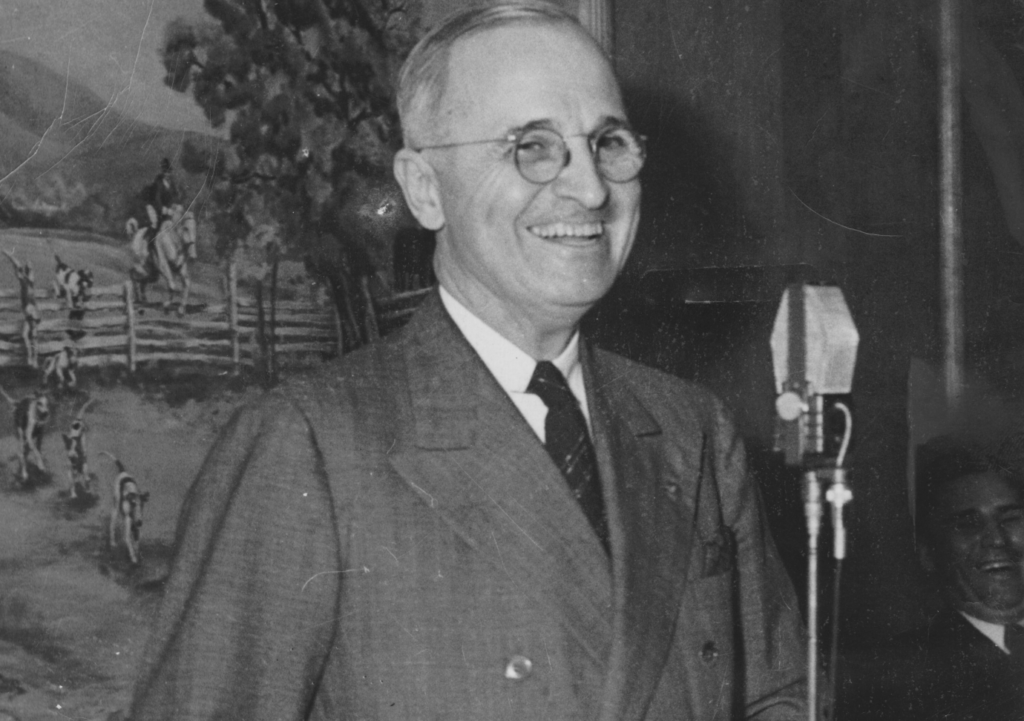One of the great forgotten changes in American politics over the last hundred years is the transformation of the Democratic party. A century ago, Democrats were the conservative white Southern party, pictured in cartoons as Colonel Sanders-type gentlemen in white suits. African Americans in cities mostly voted Republican at the time.
A century ago, Democrats complained about bloated budgets and high taxes, and Republicans celebrated the power of a well-financed government to protect industry and empire-build in Latin America and Asia. The New Deal coalition that created the U.S. welfare state under President Franklin D. Roosevelt and his successors represented a massive shift. Yet, surprisingly, this change did not actually start with the New Deal — it started in Kansas City.
Although everything may or may not have been up to date in Kansas City, we typically don’t think of the city as a hotbed of political progress. The twenties were the heyday of the Pendergast Machine, one of the most notorious local political organizations in American history. Working out of a West Bottoms saloon, Jim and Tom Pendergast, two Irish brothers from St. Joe, wielded the bodies and votes of Kansas City’s poorest workers, folks who lived and worked near the meatpacking plants and stockyards, to control the Democratic Party and eventually the city. In close alliance with the Italian mob based on the North Side of his territory, Boss Tom and compatriots like Judge Casimir J. “Cas” Welch, chieftain of Little Tammany east of downtown, raked in millions from police-protected liquor and gambling operations, padded city contracts for trash-hauling, and the concrete used to build the city.
But the Pendergasts only won their power through decades of hard fighting, often literally, against both Republicans and other Democratic factions. Increasingly, one of the key constituencies they leaned on was the black vote. Unlike every other former slave state, African Americans in Missouri never lost their voting rights after the end of Reconstruction. As black migrants flocked to Missouri’s cities, their votes became the key to swinging close elections, especially in Jackson County. One Democrat who learned this the hard way was Judge Harry S. Truman of Independence, who lost his seat on the Jackson County court in 1924 when the local NAACP chapter announced its opposition to him due to alleged Klan ties. Truman soon found himself selling AAA memberships.
Truman and the rest of Boss Tom’s boys never forgot the lesson. With black Republicans feeling taken for granted, especially after the GOP held a segregated national convention in KC in 1928, they crusaded against the Klan, built a new hospital for the black community and funded a black Democratic newspaper, the American, to compete against the Republican Kansas City Call. Most significantly, perhaps, they fostered KC’s black community as a center of the national jazz scene by giving the nightclubs and black musicians some needed protection from the Republican-controlled police. (This protection helped the machine and Mafia make money, too.)
In campaigns led by Cas Welch and black leaders Dr. William Thompkins and Felix Payne, a nightclub owner, the Democrats doubled their African American vote in every election from 1928 to 1936. They did particularly well in 1930, campaigning hard on the issue of police brutality and sweeping the local and statewide elections two years before FDR even took office. Ruthlessly practical and non-ideological, “Friends of the Lowly” like Pendergast and Welch represented socialism KC-style — respect, relative justice, cheap drinks and public works for all, regardless of class, creed or color. They were ready for the New Deal and stood ready to deliver the Missouri bellwether to Franklin D. Roosevelt when he ran in 1932. No Democrat had ever won the presidency without Missouri.
It was left for Senator Harry Truman himself to bring the Democrats all the way to liberalism. Almost ruined by the fall of Pendergast in the late 1930s, Truman had to run for reelection on his own in 1940. With advice from Thompkins, Truman veered left on race, far ahead of the Roosevelt administration, launching his campaign in Sedalia with a soaring speech about the “brotherhood of man” that made civil rights and equality for blacks a major part of his platform: “In giving to the Negroes the rights that are theirs, we are only acting in accord with our ideals of a true democracy,” he said. By integrating the armed forces and expanding the welfare state during his presidency, Truman showed this was more than mere rhetoric and cemented the creation of American politics on the Kansas City model.
Jeffrey L. Pasley is a professor of history at the University of Missouri and the associate director of the Kinder Institute on Constitutional Democracy.




